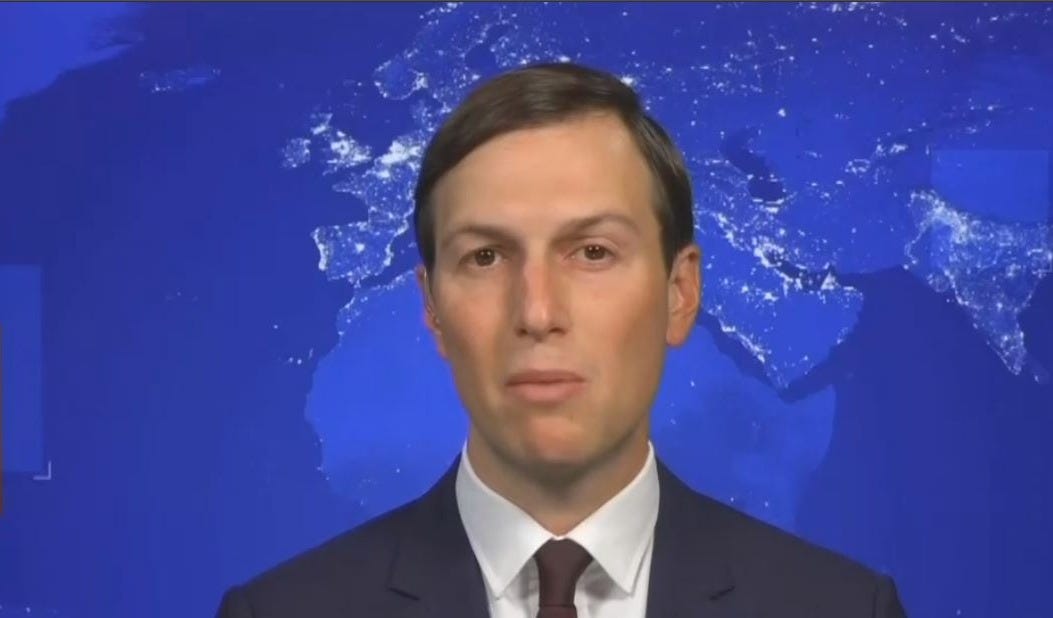Arizona Sen. Kyrsten Sinema has done the inevitable: She is leaving the Democratic Party.
In an interview with CNN’s Jake Tapper, the first-term senator said her decision to register as an independent in her home state “makes a lot of sense,” and that she won’t caucus with Republicans, meaning her decision won’t upset the balance of power in the US Senate after the reelection of Sen. Raphael Warnock of Georgia that gave Democrats a 51-49 majority earlier this week.
Her decision seems obvious to many followers of national politics or anyone who has followed Sinema’s career. The Arizona senator, who started her political career as a Green Party activist before joining Democrats to run for a state House seat in 2004, has never been the conventional “team player.” She’s frustrated Republicans for enabling Democratic control of Congress, and Democrats, both progressive and moderate, for not giving that majority more power and latitude to pass sweeping legislation. That seeming fickleness rests in her varying ideological stances (more socially liberal than Republicans, and more fiscally conservative than most Democrats), her support for the Senate filibuster (including reinstating the 60-vote threshold for executive and judicial appointments), and her opposition to the party’s most progressive economic ideas.
The news of her switch caught Arizona Democrats off guard, with rumors of big news from Sinema only swirling around Capitol Hill last night and uncertainty about whether it was related to the immigration reform deal she has been trying to broker with Republican North Carolina Sen. Thom Tillis.
“I’ve never fit neatly into any party box,” she told Tapper. “Removing myself from the partisan structure — not only is it true to who I am and how I operate, I also think it’ll provide a place of belonging for many folks across the state and the country, who also are tired of the partisanship.”
Her announcement, timed after the final Senate contest was decided in Georgia’s runoff, also throws part of the 2024 election cycle into flux — Sinema is up for reelection in two years and has been deeply unpopular with Democrats in her home state. Though no candidates have formally announced challenges to Sinema, her chances of winning a Democratic primary appeared slim, according to polling in 2021 and 2022 of hypothetical matchups against other well-known Arizona Democrats, including the raucous Phoenix-area Rep. Ruben Gallego.
A pragmatic progressive, Gallego was the frontrunner to win a Democratic primary, according to polling this year from Data for Progress. Though he hasn’t announced a run himself, Gallego was critical of the senator’s move, saying in a statement to Vox, “At a time when our nation needs leadership most, Arizona deserves a voice that won’t back down in the face of struggle. Unfortunately, Senator Sinema is once again putting her own interests ahead of getting things done for Arizonans.”
Sinema isn’t saying yet whether she plans to run again, but if she does, it will be in a race with unprecedented dynamics that favor her new affiliation.
What this means for the Senate
Senate control isn’t expected to change. Without Sinema, Democrats — thanks to the two independents who caucus with them (Angus King of Maine and Bernie Sanders of Vermont) — would still control the chamber with Vice President Kamala Harris’s tiebreaking vote.
Sinema told Politico that she expects to keep her committee assignments — which would require continued Democratic control of the Senate — so Republicans can’t count on her vote just yet.
“I don’t anticipate that anything will change about the Senate structure,” she told Politico. “I intend to show up to work, do the same work that I always do. I just intend to show up to work as an independent.” She added that she sees questions about how Senate procedures will change as “a question for [Democratic Senate Majority Leader] Chuck Schumer.” She already rarely attends caucus meetings where the party’s agenda is set.
The White House, meanwhile, has “every reason to expect that we will continue to work successfully with her,” press secretary Karine Jean-Pierre said in a statement. “We understand that her decision to register as an independent in Arizona does not change the new Democratic majority control of the Senate.”
Sinema joins a streak of party-switching Senate legislators, who have tended to come from the Northeast. The last Democrat to switch parties was Joe Lieberman in 2006, who ran as an independent in Connecticut after losing a Democratic primary.
Sinema is known for her bipartisanship — she keeps in contact with Republican leadership in both chambers of Congress and has long pushed for legislation in the chamber to have support from members of both parties. That goal is part of the reason she made this decision: “In catering to the fringes, neither party has demonstrated much tolerance for diversity of thought. Bipartisan compromise is seen as a rarely acceptable last resort, rather than the best way to achieve lasting progress,” she wrote in an op-ed for the Arizona Republic explaining her decision.
But that desire for bipartisanship, a kind of radical centrism, has stymied progress in Congress. While praised for her work on the Biden administration’s infrastructure bill and tech manufacturing and microchips bill, she drew condemnation earlier in Biden’s term for blocking his initial Build Back Better economic and climate proposal, for voting against increasing the minimum wage when Biden was pushing his American Rescue Plan pandemic recovery bill, and for defending the Senate filibuster, which helped end Democrats’ efforts to pass protections for abortion rights, voting rights legislation, and gun safety reforms. (She eventually helped broker a watered-down gun control bill in the wake of the Uvalde school shooting.)
Whether Sinema is likely to have more leeway and influence in Washington now depends on how receptive the much more conservative incoming House majority will be to her next year. The likely next Republican House speaker, Kevin McCarthy, has worked in the House with Sinema before, and the senator told Politico, “We’re friends,” but his slim majority will likely pull the chamber in the retributive direction Sinema has said she opposes.
Though she has said she will not try to persuade other members of the Democratic majority, like Joe Manchin of West Virginia, to join her as an independent, she would likely need his support, or the backing of some other Democrats, to try to broker any compromises with House Republicans. With divided government in Washington, huge policy advances aren’t likely — but Sinema has never been one for large, immediate change. Her style of incremental reform would likely benefit from a federal government that can now only advance with bipartisan cooperation.
Both she and Manchin will face tough reelection bids in 2024. And though Manchin is running in a much more Republican state than Sinema would be, they could both benefit from a bit of distance with Biden and national Democrats.
What this means for Arizona — and the 2024 campaign
Sinema’s decision reflects a tradition of Arizona politics, where registered independents rival the state’s registered Republicans as the state’s largest voting group. The state is split nearly evenly into thirds among the two major parties and independents.
Based on initial exit polls, the makeup of this year’s electorate reflected some of this dynamic: Independents made up the largest group of voters in the Senate race, and they backed Democratic incumbent Mark Kelly by more than 15 points. Republicans, the next largest group, backed candidate Blake Masters by a smaller margin than they backed the 2020 election-denying gubernatorial candidate Kari Lake.
Sinema has said that her decision to change parties is meant to reflect this dynamic: “I promised I would never bend to party pressure,” she wrote in her op-ed. “Arizonans — including many registered as Democrats or Republicans — are eager for leaders who focus on common-sense solutions rather than party doctrine. … It’s no wonder a growing number of Americans are registering as independents. In Arizona, that number often outpaces those registered with either national party.”
Arizona’s partisan breakdown isn’t expected to change dramatically before 2024, and Sinema’s decision makes the state’s upcoming Senate race wide-open. Sinema isn’t announcing a reelection effort yet, only saying that she does not plan to run for president. But if she does run, her move could work to her advantage.
She faced an uphill challenge by running as Democrat — she wasn’t leading in any hypothetical polling conducted in 2021 or 2022 when matched up against leading alternative Democratic candidates, like Rep. Gallego, Rep. Greg Stanton, Phoenix Mayor Kate Gallego, or Tucson Mayor Regina Romero. Her favorability ratings remained low during the last year in both public and private Democratic polling from the Kelly campaign, according to a Democratic operative who was familiar with those results. Now, by unaffiliating herself with the state party, she could avoid what likely would have been a bruising primary contest that she would have lost.
No one has yet jumped in to officially challenge her, though Ruben Gallego, who has been particularly vocal in his criticism of Sinema, has been seriously considering a Democratic bid.
Republicans don’t have a clear frontrunner, either — Lake, the most widely known Republican in the state, lost the gubernatorial race this year and carries the baggage of election denialism and Trumpism. She has been floated as a possible running mate for Trump’s 2024 election bid, and though Arizona doesn’t explicitly ban running for two federal offices, it does prohibit running for two state or local offices at the same time.
Still, it’s not clear who would benefit from a three-way race: Sinema could argue to Democratic Senate leadership that supporting anyone other than her would result in a Republican victory, given the tight margins Democrats have won with before. If she were able to convince them of this, that could effectively shut down any challenge from her left during what is shaping up to be a brutal cycle for Senate Democrats in 2024. In the meantime, she has already cut an ad in Arizona declaring her independent status.















